Related Research Articles
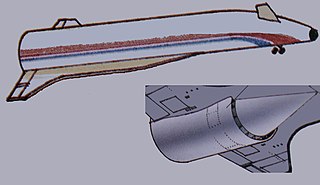
HOTOL, for Horizontal Take-Off and Landing, was a 1980s British design for a single-stage-to-orbit (SSTO) spaceplane that was to be powered by an airbreathing jet engine. Development was being conducted by a consortium led by Rolls-Royce and British Aerospace (BAe).
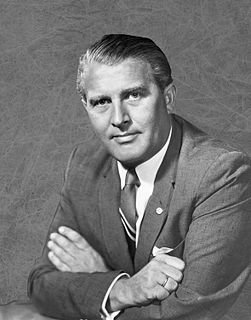
Wernher Magnus Maximilian Freiherr von Braun was a German-American aerospace engineer and space architect. He was a member of the Nazi Party and SS, as well as the leading figure in the development of rocket technology in Nazi Germany and a pioneer of rocket and space technology in the United States.

Operation Paperclip was a secret United States intelligence program in which more than 1,600 Nazi German scientists, engineers, and technicians were taken from former Nazi Germany to the U.S. for government employment after the end of World War II in Europe, between 1945 and 1959. Conducted by the Joint Intelligence Objectives Agency (JIOA), it was largely carried out by special agents of the U.S. Army's Counterintelligence Corps (CIC). Many of these personnel were former members, and some were former leaders, of the Nazi Party.

Robert Brent "Bob" Thirsk, is a Canadian engineer and physician, and a former Canadian Space Agency astronaut. He holds the Canadian records for the most time spent in space. He became an officer of the Order of Canada (OC) in 2013 and was named to the Order of British Columbia (OBC) in 2012.

Michael Richard Clifford was a United States Army officer and NASA astronaut. Clifford was a Master Army Aviator and logged over 3,400 hours flying in a wide variety of fixed and rotary winged aircraft. He retired from the U.S. Army at the rank of lieutenant colonel. He logged six hours of spacewalk time over three Space Shuttle missions. He was also one of the first people to conduct a spacewalk while docked to an orbiting space station: that spacewalk was conducted during STS-76, while docked at the Russian space station Mir.
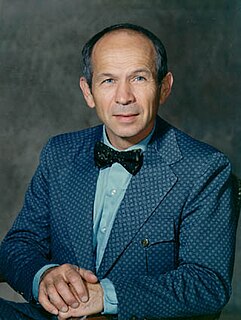
Maxime Allen "Max" Faget was a Belizean-born American mechanical engineer. Faget was the designer of the Mercury spacecraft, and contributed to the later Gemini and Apollo spacecraft as well as the Space Shuttle.
Ivan Alexander Getting was an American physicist and electrical engineer, credited with the development of the Global Positioning System (GPS). He was the co-leader of the research group which developed the SCR-584, an automatic microwave tracking fire-control system, which enabled anti-aircraft guns to destroy a significant percentage of the German V-1 flying bombs launched against London late in the Second World War.

The British Interplanetary Society (BIS), founded in Liverpool in 1933 by Philip E. Cleator, is the oldest existing space advocacy organisation in the world. Its aim is exclusively to support and promote astronautics and space exploration.
Alan Bond is a British mechanical and aerospace engineer, who served as Managing Director of Reaction Engines Ltd and associated with Project Daedalus, Blue Streak missile, HOTOL, Reaction Engines Skylon and the Reaction Engines A2 hypersonic passenger aircraft.

The Journal of the British Interplanetary Society (JBIS) is a monthly peer-reviewed scientific journal that was established in 1934. The journal covers research on astronautics and space science and technology, including spacecraft design, nozzle theory, launch vehicle design, mission architecture, space stations, lunar exploration, spacecraft propulsion, robotic and manned exploration of the solar system, interstellar travel, interstellar communications, extraterrestrial intelligence, philosophy, and cosmology. It is published monthly by the British Interplanetary Society.
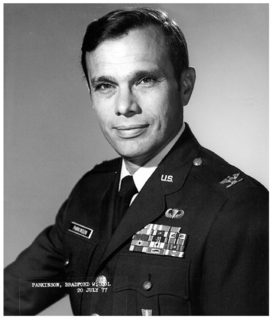
Bradford Parkinson is an American engineer and inventor, retired United States Air Force Colonel and Emeritus Professor at Stanford University. He is best known as the lead architect, advocate and developer, with early contributions from Ivan Getting and Roger Easton, of the Air Force NAVSTAR program, better known as Global Positioning System.
The Sir Arthur Clarke Award is a British award given annually since 2005 in recognition of notable contributions to space exploration, particularly British achievements. Nominations for the awards are made by members of the public, with shortlists drawn up by a panel of judges, who also choose the winner. Sir Arthur C. Clarke chose a special award independently of the public nominations.

John Cornelius Houbolt was an aerospace engineer credited with leading the team behind the lunar orbit rendezvous (LOR) mission mode, a concept that was used to successfully land humans on the Moon and return them to Earth. This flight path was chosen for the Apollo program in July 1962. The critical decision to use LOR was viewed as vital to ensuring that man reached the Moon by the end of the decade as proposed by President John F. Kennedy. In the process, LOR saved time and billions of dollars by efficiently using the rocket and spacecraft technologies.
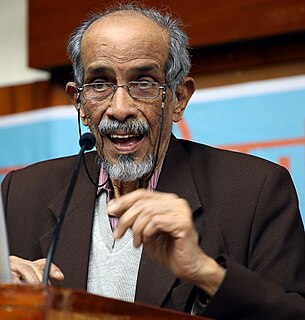
Roddam Narasimha was an Indian aerospace scientist and fluid dynamicist. He was a professor of Aerospace Engineering at the Indian Institute of Science (1962–1999), director of the National Aerospace Laboratories (1984–1993) and the chairman of the Engineering Mechanics Unit at Jawaharlal Nehru Centre for Advanced Scientific Research. He was the DST Year-of-Science Chair Professor at JNCASR and concurrently held the Pratt & Whitney Chair in Science and Engineering at the University of Hyderabad. Narasimha was awarded the Padma Vibhushan, India's second-highest civilian award, in 2013.
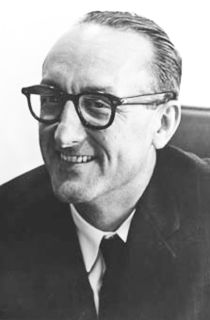
George Edwin Mueller, was an American electrical engineer who was an associate administrator at NASA who headed the Office of Manned Space Flight from September 1963 until December 1969. Hailed as one of NASA's "most brilliant and fearless managers", he was instrumental in introducing the all-up testing philosophy for the Saturn V launch vehicle, which ensured the success of the Apollo program in landing a man on the Moon and returning him safely to the Earth by the end of 1969. Mueller also played a key part in the design of Skylab, and championed the Space Shuttle's development, which earned him the nickname, "the father of the Space Shuttle."

Indian Institute of Space Science and Technology (IIST) is a government-aided institute and deemed university for the study and research of space science, located at Valiamala, Nedumangad, Thiruvananthapuram, Kerala. It is the first university in Asia to be solely dedicated to the study and research of Outer space. It was inaugurated on 14 September 2007 by G. Madhavan Nair, the then Chairman of ISRO. IIST was set up by the Indian Space Research Organisation (ISRO) under the Department of Space, Government of India. A. P. J. Abdul Kalam, former President of India, was the Chancellor of IIST. IIST offers regular engineering undergraduate, postgraduate and doctorate programmes with focus on space science, technology and applications.
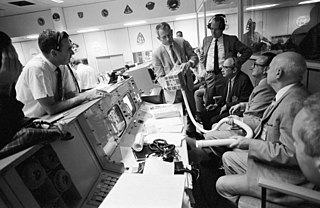
Aerospace engineering is the primary field of engineering concerned with the development of aircraft and spacecraft. It has two major and overlapping branches: aeronautical engineering and astronautical engineering. Avionics engineering is similar, but deals with the electronics side of aerospace engineering.
An Oral History of British Science is an oral history project conducted by National Life Stories at the British Library. The project began in 2009 with funding from the Arcadia Fund, the Royal Commission for the Exhibition of 1851 and a number of other private donors and focuses on audio interviews with British science and engineering figures.
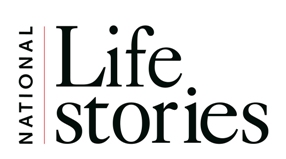
National Life Stories is an independent charitable trust and limited company based within the British Library Oral History section, whose key focus and expertise is oral history fieldwork. Since 1987 National Life Stories (NLS) has initiated a series of innovative interviewing projects funded almost entirely from sponsorship, charitable and individual donations.
David Baker is a prolific British space author and self-described space scientist. His description of his career is that he first visited the US in 1962 and returned to work for NASA on the Gemini, Apollo and Space Shuttle programs between 1965 and 1984 as a Mission Planning and Analysis Department. He reports that he was present at NASA during Apollo 13 in 1970.
References
- ↑ "Dr Bob Parkinson MBE". www.bis-space.com. Archived from the original on 11 May 2012.
- ↑ "Parkinson, Bob (Part 11 of 15). An Oral History of British Science. - Oral history of British science - Oral history | British Library - Sounds".
- ↑ "Current Council Details". www.bis-space.com. Archived from the original on 14 January 2012.